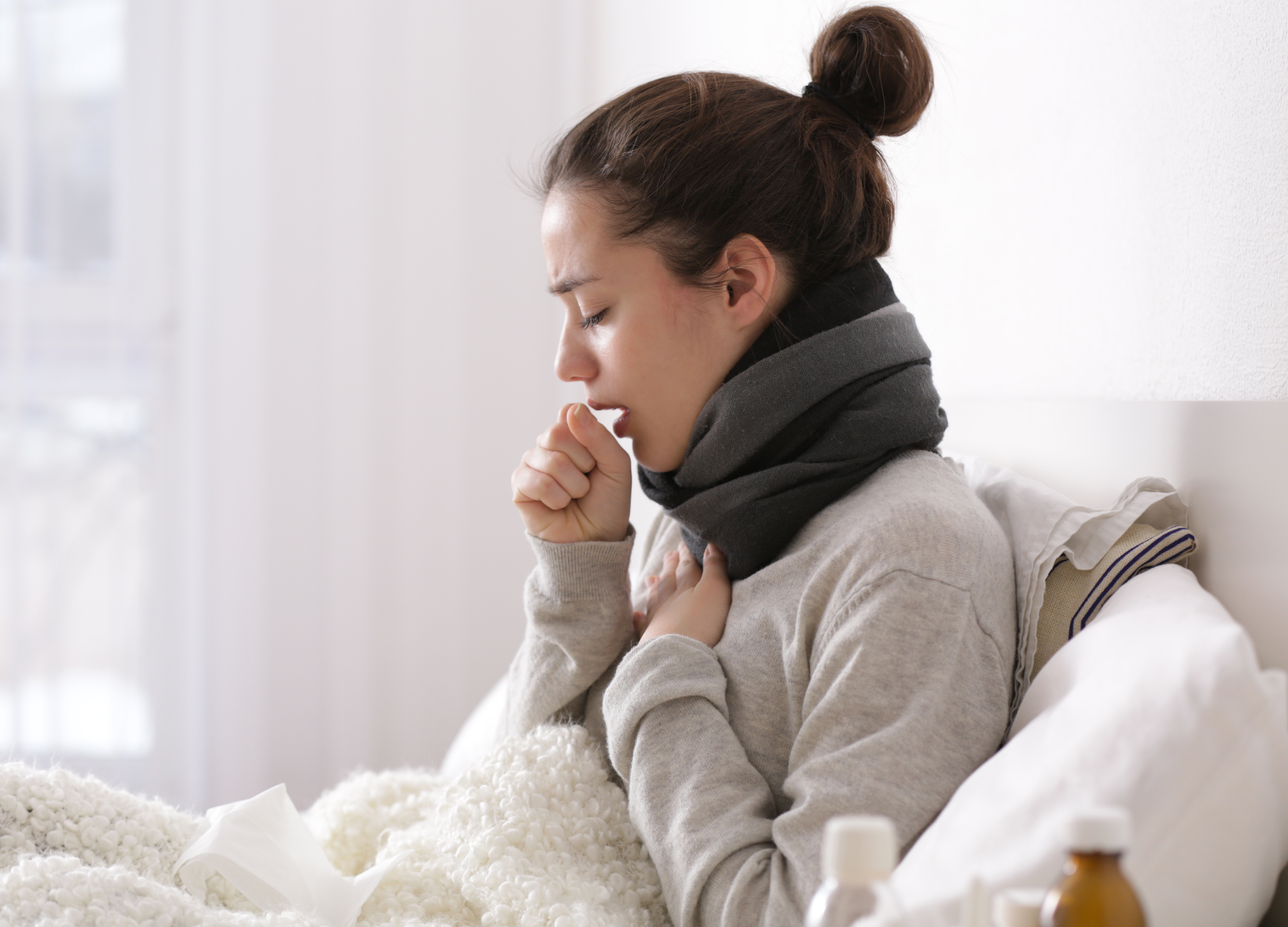- You can get rid of a cough by staying hydrated, coughing effectively to clear mucus, using cough drops or honey, and breathing moist air.
- Research has not found that cough medications are very effective, though they may help alleviate some symptoms in certain cases.
- To get rid of a cough, you should figure out whether it’s caused by the cold, flu, allergies, or another condition, which will further inform treatment.
- This article was medically reviewed by Tania Elliott, MD, who specializes in infectious diseases related to allergies and immunology for internal medicine at NYU Langone Health.
- Visit Insider’s homepage for more stories.
A cough is one of the most common reasons people see a doctor, and it’s caused by irritation or blockage in your throat or lungs. That irritation can have many root causes: inflammation due to asthma, post-nasal drip associated with allergies or nasal congestion, mucus building up from bronchitis, and even acid reflux.
However, a persistent cough can also be a sign of infectious illness, since it is closely associated with viruses like the flu and common cold. Here’s what you should know about how to get rid of a cough and when to seek help.
How to get rid of a cough
For the common cold, coughing will be mild to moderate and often coupled with a sore throat, sneezing, and a stuffy nose. With the flu, coughing is prevalent, but those secondary symptoms are less common.
Here are some of the best ways to get rid of a cough caused by an infection:
- Stay hydrated. Drink plenty of water and tea to ease the irritation in your throat. Liquids will also loosen mucus in your lungs, making it easier to clear by coughing.
- Cough effectively. Cough from your lungs, not just your throat, in order to clear mucus. "Coughing from deep in your lungs as opposed to just through your throat will help to expel deep secretions that rest in your lungs," says Erin Nance, MD.
- Use cough drops. Cough drops and hard candy can help keep your throat moist, therefore easing the irritation that causes a cough, making it a good choice for dry coughs without much mucus. However, a 2018 study suggested that menthol cough drops may lead to a longer cough duration.
- Take honey: Research has found that honey can reduce coughing and soothe the throat. Honey should be taken orally, by the spoonful, or diluted in tea or hot water.
- Breathe moist air: Some people may find that breathing moist air - either in a steamy bathroom or from a humidifier - decreases their cough by helping with dryness and loosening mucus. However, one 2017 review found that heated, humidified air didn't make a significant difference in relieving cold symptoms, so the benefits may depend on the individual.
When to use medication to get rid of a cough
In 2017, the American Academy of Chest Physicians studied treatments for getting rid of a cough, and suggested against the use of over-the-counter cough and cold medicines.
There's little evidence that over-the-counter cough medicines work well and they should not be given to kids under four, according to the American Academy of Pediatrics. Even more powerful medicines, like codeine and the cough-suppressant dextromethorphan are no more effective than honey for treating cough in kids, and they carry serious side effects.
However, adults can use some types of cough medications to relieve their symptoms. For example, expectorants break up mucus, so that you can clear your airways more effectively. A 2017 review found that guaifenesin, a type of expectorant found in Mucinex and Robitussin, is effective in treating cough caused by bronchitis and upper respiratory tract infections like the common cold.
Cough suppressants are thought to work by overriding the cough reflex, but the evidence for these over-the-counter cough medicines is weak, and some research suggests their supposed effect is a placebo.
Overall, cough medicines might alleviate coughing symptoms, but Nance says they don't address the underlying cause of the cough, which could be a virus, bacteria, allergies, acid reflux, an underlying lung condition, or even a side effect of medication.
"Understanding the reason why you are coughing will help guide the treatment for the cough," says Nance. Most of the time, and especially in flu and cold cases, a cough will get better on its own as the virus runs its course.
The Centers for Disease Control and Prevention recommends seeing your doctor if you have a cough accompanied by a fever of more than 100.4 degrees Fahrenheit, bloody mucus, or trouble breathing. In addition, if you have a cough that lasts longer than three weeks or a cough that is recurring, you should visit a doctor to determine what is causing your cough.
